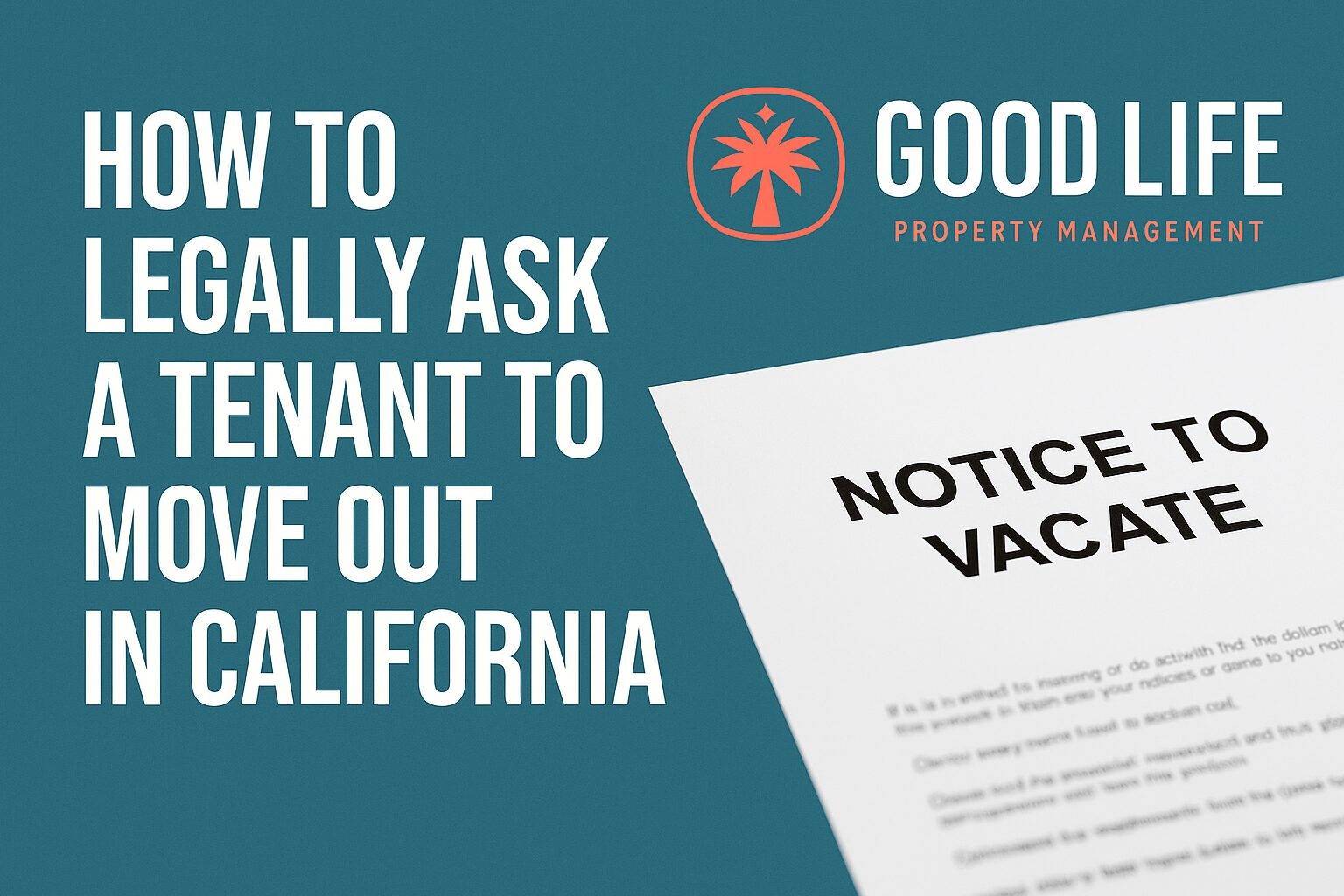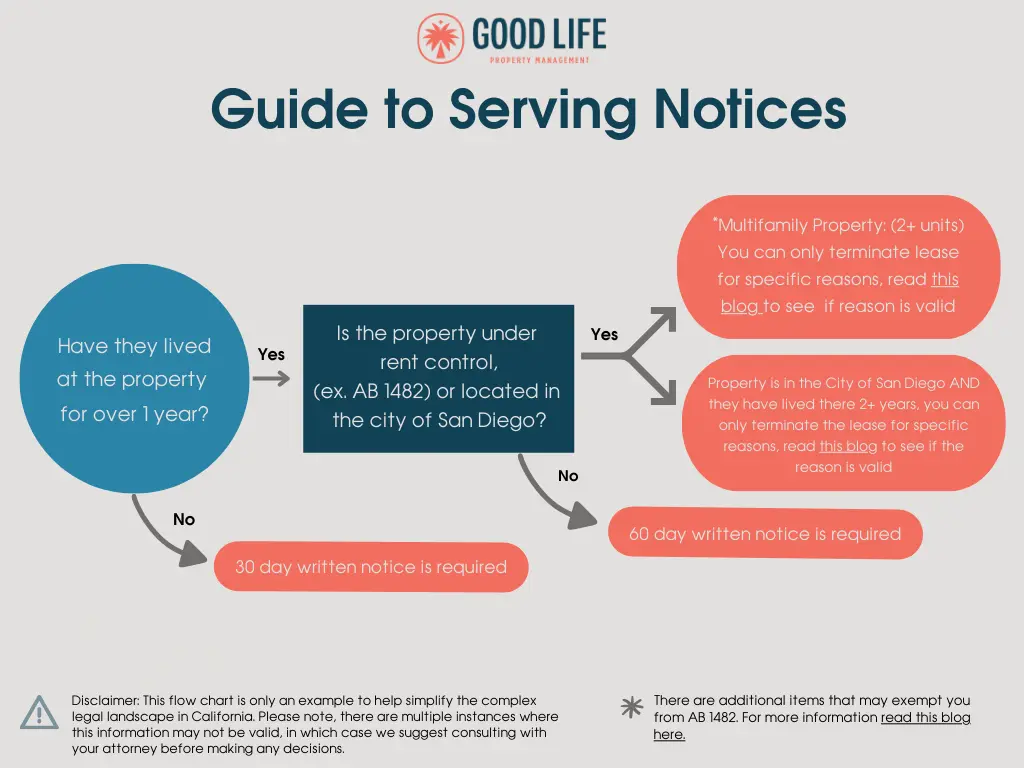Nonpayment of Rent
If the tenant has paid late rent for three consecutive months or for a total of six months in a calendar year, they can be dismissed from the property. Additionally, if they don’t pay rent at all, you can begin the eviction process.
Violations of the Obligation of the Tenancy
If the tenants fail to comply with the lease, you are able to terminate the lease. This can include things like excessive HOA violations, unauthorized pets or tenants, etc.
Nuisance
This is when the tenants are causing serious damage or harm to the property or common areas. It applies to neighboring units as well, i.e. if they are damaging surrounding areas and units or creating excessive noise and refusing to comply when asked.
Illegal Use
If the tenant is using the property for illegal purposes or doing illegal things on the property, this is grounds for lease termination.
Refusal to Renew The Lease
When you offer a lease renewal to a tenant for one year and they want month-to-month, occasionally they might refuse to sign the lease you provide because it’s not what they want. However, this is considered a refusal to renew the lease and can be grounds for termination. Keep in mind, rental rates are not considered like terms. If you offer a new lease with an increased rate and the tenants refuse, you are able to terminate the lease.
Refusal to Provide Access
This occurs when you are trying to enter the home, whether it be for an annual inspection or to show the property for sale, and the tenant refuses access to the home, despite the notice they were given. Landlords are allowed to enter the home for a set list of reasons and if the tenant continually denies access despite getting written notice and they refuse to reschedule, their lease can be terminated.
Correcting Violations & Major Property Construction
If the home is going to be uninhabitable for a long period of time due to major repairs or renovations, you are able to terminate the tenant’s lease.
Withdrawal From the Rental Market
If you plan to withdraw your property from the rental market altogether, you can terminate the tenant’s lease.
Owner or Relative Occupancy
If the owner or their relative plans to move back into the home, the lease can be terminated.
If you choose to terminate the lease for one of these reasons, you must inform the tenant as to why their lease is being terminated. We hope this article provided some clarity on just cause eviction rules in San Diego. Check out our chart below for a quick guide to serving notices at your property!
If you found this article helpful, follow us on social media. We post daily tips to help you manage your own rental property:
Steve Welty
Subscribe to our Weekly Newsletter
Join the 5k+ homeowners receiving Local Law Updates and Landlord Tips. Delivered to your inbox every Saturday at 6am PST.
Share this:
Get in touch with us:
We make owning rental property easy.
Choose Your Next Step
Good Life Blogs
We believe that education is empowering.

Trash Collection Fees Coming to San Diego Rental Properties
Trash collection fees are coming to San Diego landlords. Learn who’s affected, how much it will cost, and how to stay compliant.

How to Turn Vacant Rental Properties into Tax Deductions
Learn how to turn your rental property’s vacancy into potential tax deductions. Discover the rules, strategies, and tips landlords need to know.

How to Legally Serve a Notice to Vacate in California
Learn how to legally serve a notice to vacate in California. Avoid lawsuits by understanding lease types, notice timing, AB 1482, and local laws.







